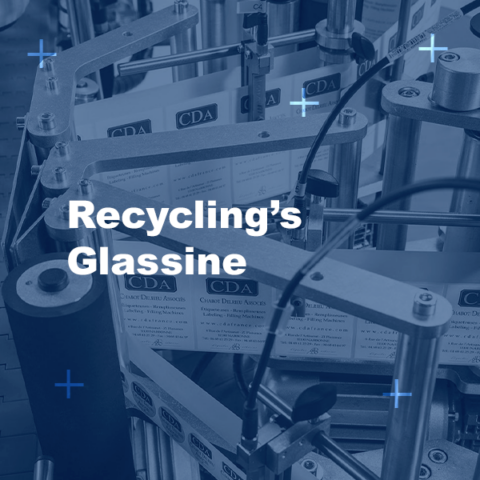What Exactly Is Glassine?
Glassine is a type of paper treated with silicon that boasts a smooth texture and resistance to substances like grease and water. Crafted from unbleached wood fibers, it possesses a translucent quality. Its sleek surface lends itself well to a multitude of uses, ranging from food packaging and envelopes to serving as a support material for self-adhesive labels in roll-fed applications.
As businesses label their products, they invariably generate waste composed of glassine. Effectively managing this waste poses a significant challenge for companies striving to reduce their environmental footprint while maintaining peak production efficiency.
Glassine: A versatile material increasingly recycled by companies
Glassine is a versatile material that is gaining in popularity for a good reason: its recyclability. For several years now, the industry has been organizing itself to find recycling solutions. Today, a number of companies and associations can take charge of this “waste” and transform it into a “deposit”.
For years, the use of glassine has had harmful effects on the environment. In France, it has generated almost 50,000 tonnes of waste every year, much of which has ended up in landfill or incinerated, contributing to pollution and the degradation of ecosystems.
However, new advances and solutions have been found to tackle this environmental problem. The recyclability of glassine has become a priority for many companies, which can now collect it and pass it on to organizations responsible for processing it. Glassine can be transformed into paper, granules and other insulating materials for buildings.
We find, for example,
- Republic Services,
- GFL,
- TerraCycle.
Advantages of Glassine Recyclability for Companies
Recycling glassine offers a number of advantages, including :
- Waste reduction: By opting to recycle their glassine, companies can considerably reduce their waste production, which helps to preserve the environment and combat pollution.
- Compliance with environmental standards: In a regulatory context increasingly focused on protecting the environment, recycling materials enables companies to comply with current environmental standards.
- Eco-responsible brand image: More and more consumers are looking to support brands that adopt sustainable practices. By recycling glassine, companies can reinforce their eco-responsible brand image and attract customers who are increasingly concerned about the environment.







